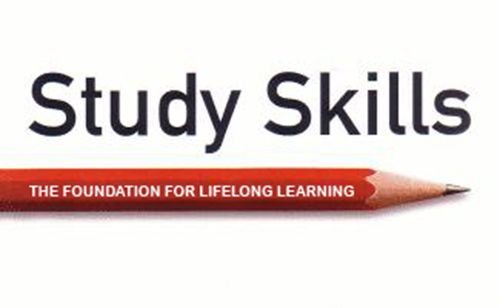
Study could be seen as the concentration of one’s time and attention to examining a material or thing. It is a process of learning, through careful examination and consideration of facts committed to the memory. When we study, we are also researching to have an update of knowledge on a particular subject to help us function meaningfully in society. Therefore, study skills are all the tools, ability and conscious efforts employed by a learner to acquire knowledge in such way that will save labor and time for the purpose of attaining academic success.
Some of these skills include;
- NOTE TAKING
Note taking is very important study skill which has hitherto remained indispensable to students especially at tertiary institutions. Note taking can take place during lectures, seminars or sermons. Since we cannot remember everything we have read or heard it is absolutely necessary to take notes so as to have a record of what we have studied. We take notes for three purposes:
Examination purpose
Research purpose
Knowledge/retention purpose
IMPORTANCE OF NOTE TAKING
Helps to be an active participant in a discourse during lectures
It helps the student to keep accurate record of lessons he has received during studies for easy retrieval
Aids easy understanding through picking out of key points
It provides an easy summary lessons
TECHNIQUES FOR EFFECTIVE NOTE TAKING
One of the ways note taking is different from note making is that note taking makes predominant use of abbreviation, symbols, and acrostics. Note making, on the otherhand involves developing the note that had been taken. This means note-taking procedes note making and its techniques are as follows;
The use of keywords, this can be in phrases, it helps to reduce boredom, laborious details and it summaries the content making ideas easily communicated as it shows neatness
The use of symbol, its include use of signs or object representing an idea, value or thing such as; @, &, +, =, <, >, etc.
The use of Abbreviation such as; Mr., i.e., Dr, Rev, Hon.
The use of Acronyms
The use of Acrostic, it is a piece of writing in which the first or last letter of a line is spells a word. Example: Info -Information, Econs –Economics, Promo –Promotion.
TECHNIQUES FOR IMPROVING NOTE TAKING
Separate main items from supporting details.
Leave wide margin and gaps for additional comments
Fast writing and good writing material help maintain clarity and legibility necessary for reading and study.
Put asterisk (*) on the margin against points not properly understood or subject to confirmation.
Compare notes with another student who also attended the lecture in case you missed some points
- USE OF THE DICTIONARY
The dictionary is a book containing words of a language arranged in alphabetical order for easy reference. It is a collection of words by expert (semanticists) known a lexicographers in a special vocabulary of various disciplines. The lexicon as it is also called is an indispensable tool at the learner’s disposal in aiding study and facilitating learning.